Gandalf | Interview | Extremely Rare Private Press from Sweden
From Uppsala emerged Gandalf, a progressive powerhouse born in the mid-70s in Sweden.
Their self-titled album, ‘Gandalf,’ originally released in 1977, is now receiving a long-awaited reissue from PQR-Disques plusqueréel. In a true resurrection fashion, the acid-drenched vibes will stir the soul and transport listeners to the enchanting woods where hippie dreams intertwine with the stars. Accompanied by a 12-page booklet featuring original lyrics and previously unseen photographs, this release is a treasure trove for aficionados of Swedish psych and prog. Gandalf stands tall among their peers like San Michael’s and Kaipa, offering a resourceful blend of acid-drenched psychedelia alternating with prog movements that reflect the emergent and sedimented styles of the era. This is no ordinary Gandalf, but a booze-suffused hippie version on the lookout for the next witches’ party out in the woods.
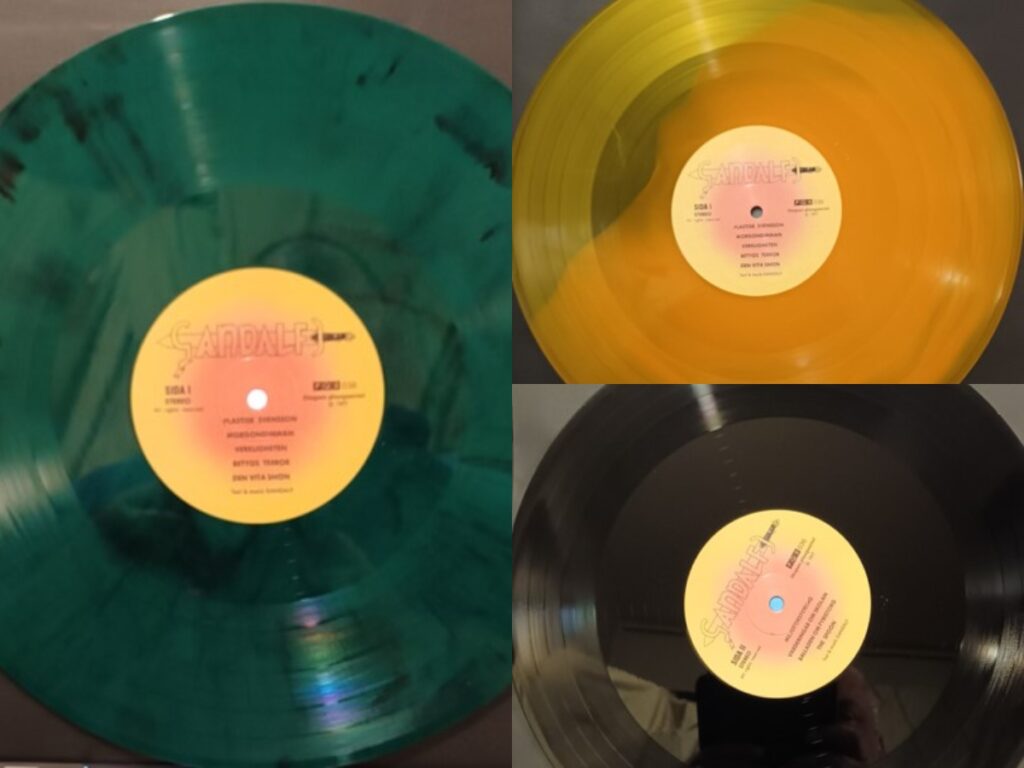
Gandalf’s self-titled album is available in three limited editions:
Black Vinyl: Order here (100 numbered copies)
Marble Vinyl: Order here (100 numbered copies)
Splatter Vinyl: Order here (100 numbered copies)
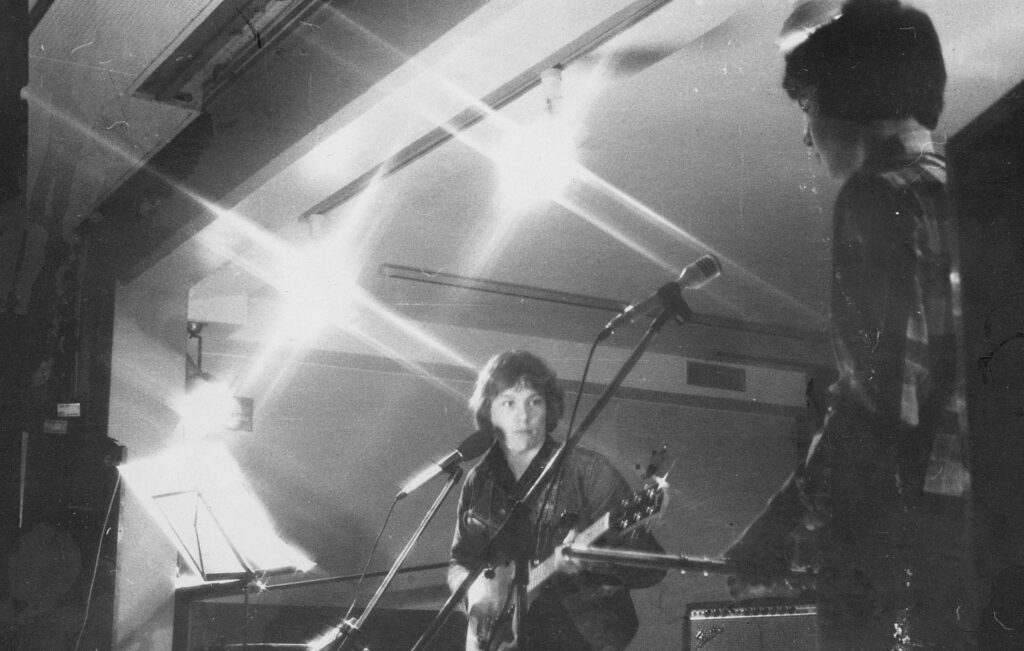
“Everything goes in cycles”
When and where were the founding members of Gandalf born and raised? Please state the city and full date or year for each member.
Johan von Feilitzen was born in Helsingborg in 1960, raised in Kiruna, and now lives in Uppsala.
Per-Åke Persson was born in 1961, raised in Uppsala, and still lives there.
Lars Linell was born in 1959 and lives in Uppsala.
Mats Ågren was born in the 1960s, raised in Stockholm, and has lived in Uppsala.
Michael Schlömer was born in the 1960s and raised in Bollnäs.
What sort of cultural influences impacted your decision to engage in musical composition and the imagery you adopted (music, books, cinema, theater, or any other art form)?
A lot of things were going on in the 70s. Art, music, literature, and theater were all influenced by the political left-wing movement. It was a mix that later changed to the punk movement and new wave. David Bowie and Iggy Pop were making music, the Sex Pistols started, and movies like The Man Who Fell to Earth, Star Wars, and Dr. Who, along with Andy Warhol’s Portraits of the Seventies and Andy Warhol’s Exposures (both 1979), were also influential.
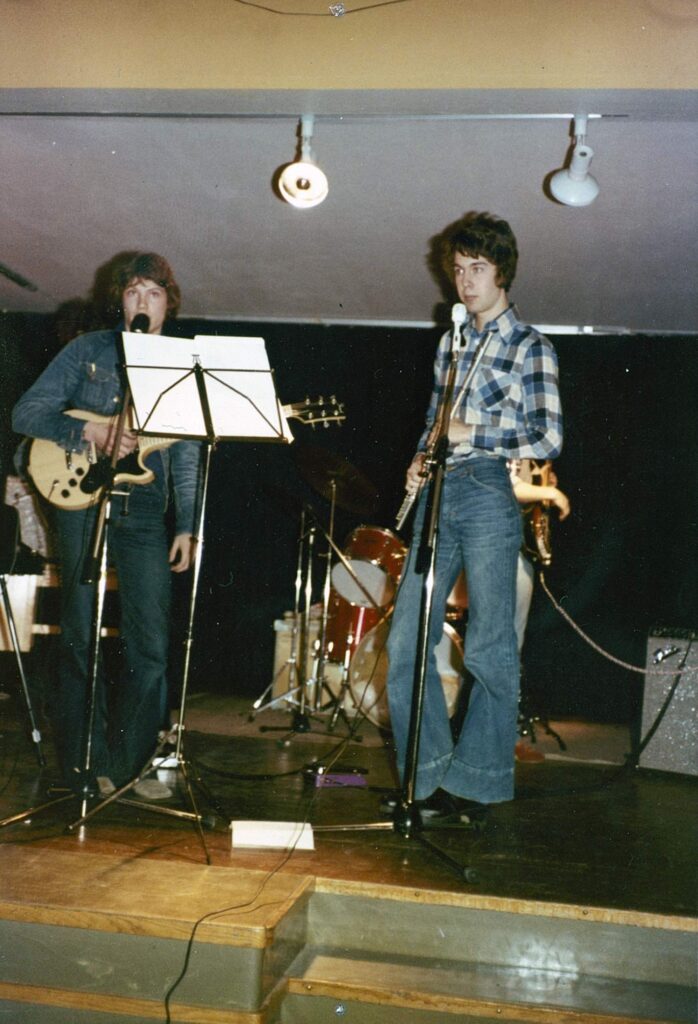
What were the reasons for naming the band after Gandalf, allegedly a poppish adaptation of this mythical figure?
Some of us had read The Lord of the Rings and thought it would be a good idea to name the band after the mysterious wizard.
Gandalf’s sound is quite versatile. Each track is rooted in a different genre, from prog to psych to blues to boogie, and even proto-punk. Which bands influenced your sound, and what was the risk in adopting such a versatile repertoire?
The Swedish prog movement had a significant impact on the band, even though it was sometimes difficult to navigate all the political constraints regarding music and what kind of music was considered “right” in their eyes. A lot of Swedish music was too commercial for the Swedish prog society at that time.
Influential Swedish bands included Hoola Bandoola Band, Nynningen, Kebnekajse, Ola Magnell, Ensamma Hjärtan, Motvind, Coste Apetrea, Zamla Mammas Manna, Mobben, Kaipa, Nationalteatern, and Norbottensjärn, Rekyl.
Other influences came from Focus, Pink Floyd, Ekseption, Gentle Giant, Frank Zappa, and Deep Purple.
Why did you release your album privately? Did you contact any labels prior to that?
We tried to contact some record companies but decided to do it on our own, so we collected the funding mostly from our school friends. From there, we produced the album and released it in an amount of 378 copies.
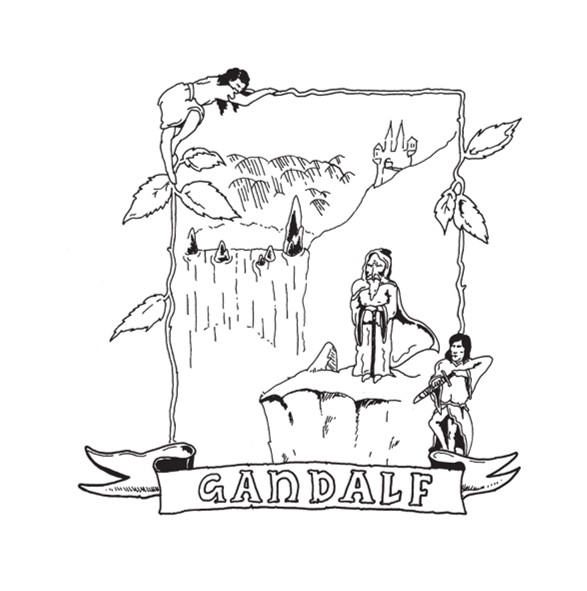
What were the dominant genres in Sweden at the time you released your album, as well as the broader entertainment habits of the youth segment?
At that time in Sweden, there was the commercial side of the music business, like ABBA, and then the other side was that of Swedish prog. Those were the mainstream genres at the time, so culture, music, clothes, and pretty much everything were influenced by that.
How would you describe the dominant cultural regime of early 70s Sweden? What were the main sociocultural and political antagonizing forces, how were they manifested in the era’s cultural production (music and other art forms), and how were Gandalf positioned within this sociocultural milieu? Did you ever face pressures from political agents to modify any aspect of your aesthetic gestalt?
The Swedish prog had a big impact on the music scene in the late 70s. It was all about love, peace, and happiness; people lived in collectives, moved out to the country, and grew their own crops. A lot of bands started in those communities, and demonstrations were influenced by the left-wing movement.
We had some issues when the venue/music contractor didn’t think we were political enough to play.
In most cases, musicians’ early career steps are made in an environment marked by financial scarcity. How did you make a living during the Gandalf days and up until the band’s dissolution? Can you give examples where your passion for music was so strong that it allowed you to overcome any adversities you encountered during that period?
All in all, we were young and a school band, so we split up before we thought of making it a living.
When exactly did Gandalf dissolve, what were the reasons, and which bands (if any) did the former members join?
Somewhere around the 80s, when punk came along and so much changed on the music stage. Prog seemed to fade away and was replaced by punk in a new wave, with the main message being that everyone can play music.
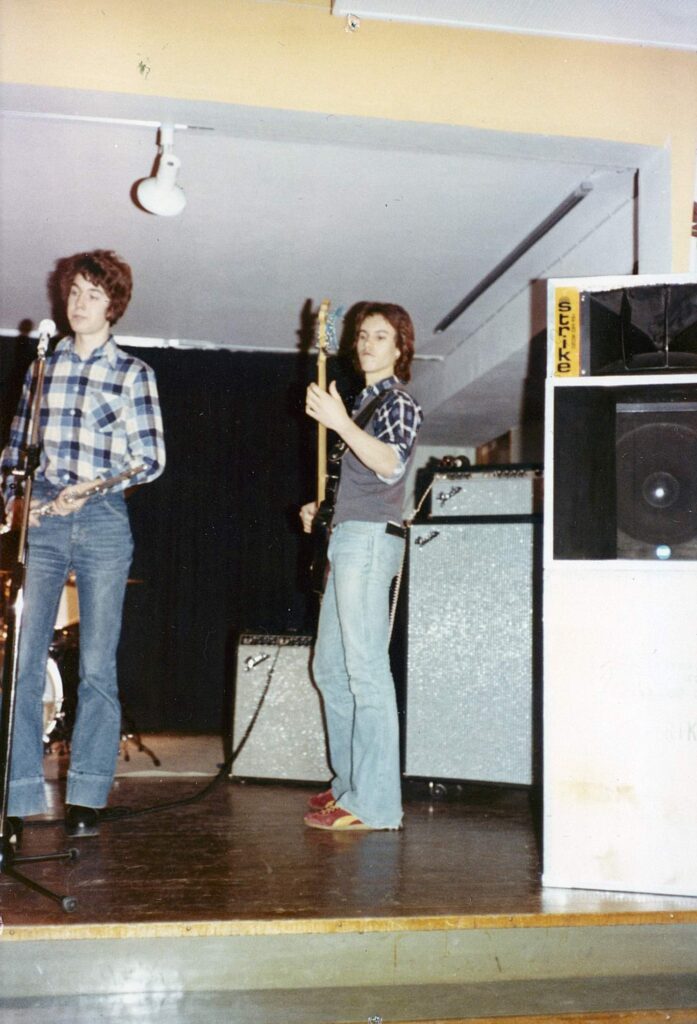
Give us a vivid portrayal of the audience participation and response to your early live performances. How would you describe the feelings and images that were dominant in your early live shows, and how would you compare and contrast them with contemporary audiences?
We had good support from the audience in Uppsala, and we did some tours of other schools, for example.
Which memorable shows/venues can you recall and why? What makes them special for you? Please provide as many specific dates and places as possible.
We played for 25,000 happy people outside Stockholm at Hagafesten on a fantastic summer day with a great audience, and that was very memorable.
Give us a detailed account of the bands you shared the stage with at that time, bandmates, and share with us memorable moments from these collaborations. Are there any musicians or other mediators of cultural production you’re still in contact with?
It was a prog band that was famous at the time, and we played with a lot of upcoming younger bands.
A “new” versus “old” psych and prog music rhetoric is widely propagated in contemporary media. Why do you think this contrived divide is pursued so persistently? Are we confronted with some sort of cultural politics that aim at imposing the beginning of a “New Age” by throwing everything that preceded it in the bin? Is such a discontinuity tenable? Or will it ultimately transpire for what it is, i.e., the epiphenomenon of mass propaganda?
I don’t have much to say about it, unfortunately.
Would you say that today’s prog-related production is more formulaic compared to the early 70s, when spontaneity and new compositional/instrumentation pathways were at the top of bands’ agendas?
Maybe it was that 70s music was more experimental and therefore tested and invented many new sounds and new technology for the first time, whereas if you compare it to today, there are so many digital ways to choose from, and the tech already exists.
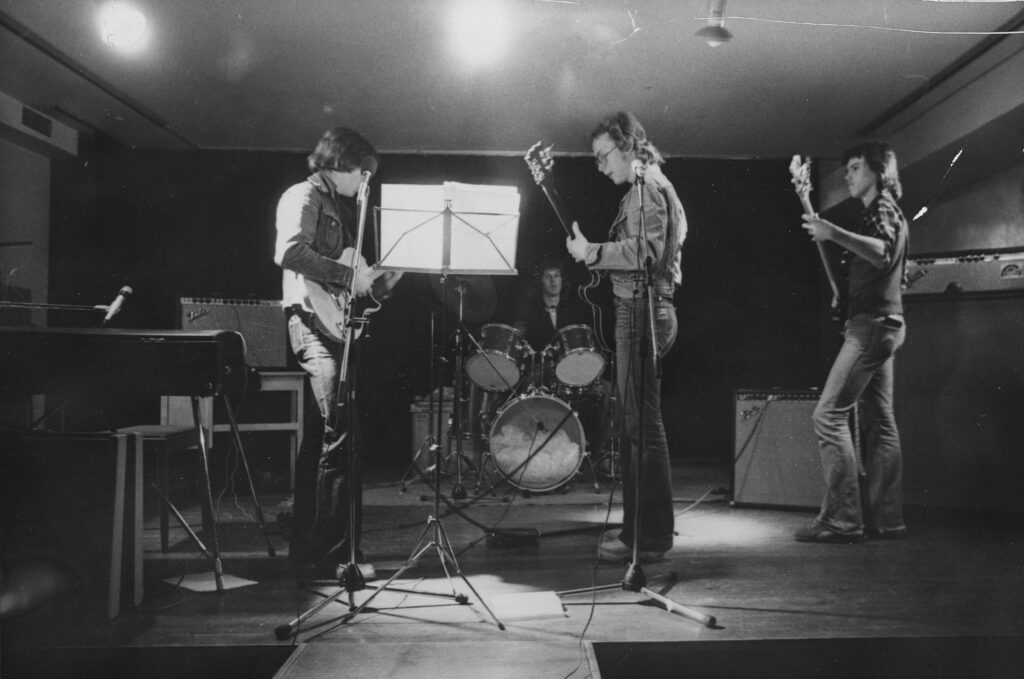
Why do you think prog music has made such a comeback over the past decade, after years of marginalization since its heyday?
Everything goes in cycles, like fashion and culture, and comes back. But I think that some genres, like hard rock and prog, have a very stable audience, with nostalgia being a factor, as well as the new generation that finds this type of music.
George Rossolatos
PQR-Disques plusqueréel Official Website / Facebook / Shop / Bandcamp / YouTube

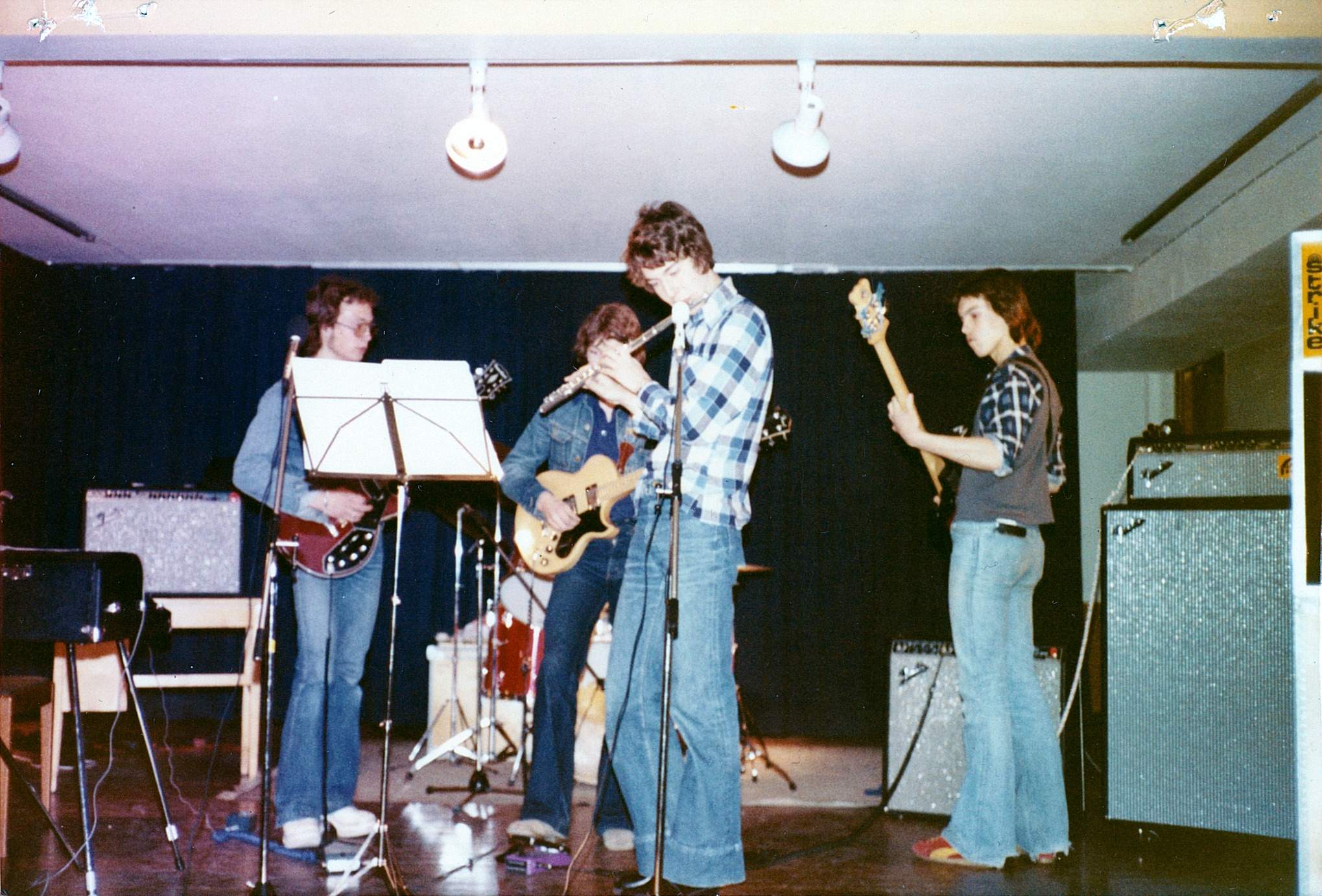
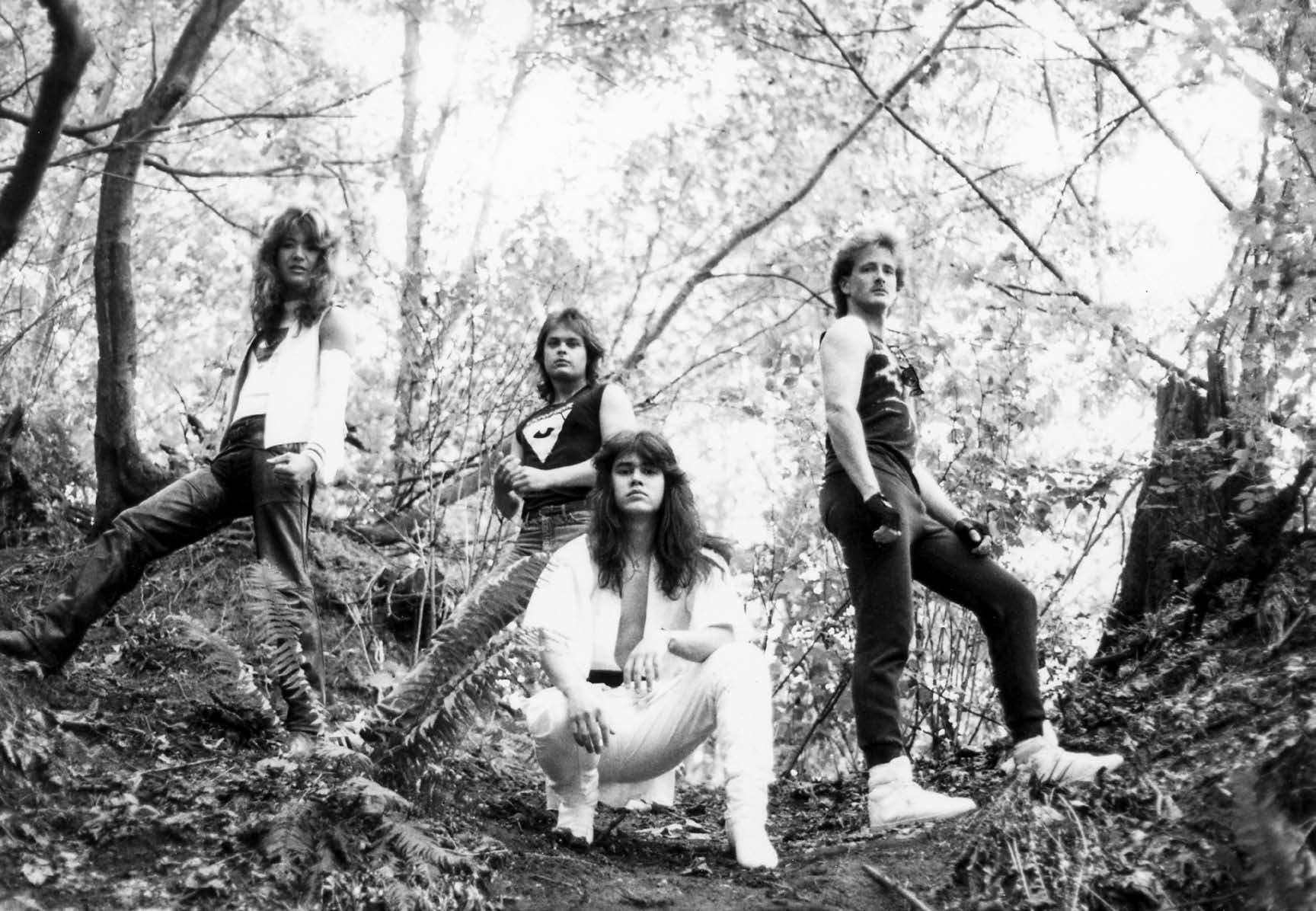
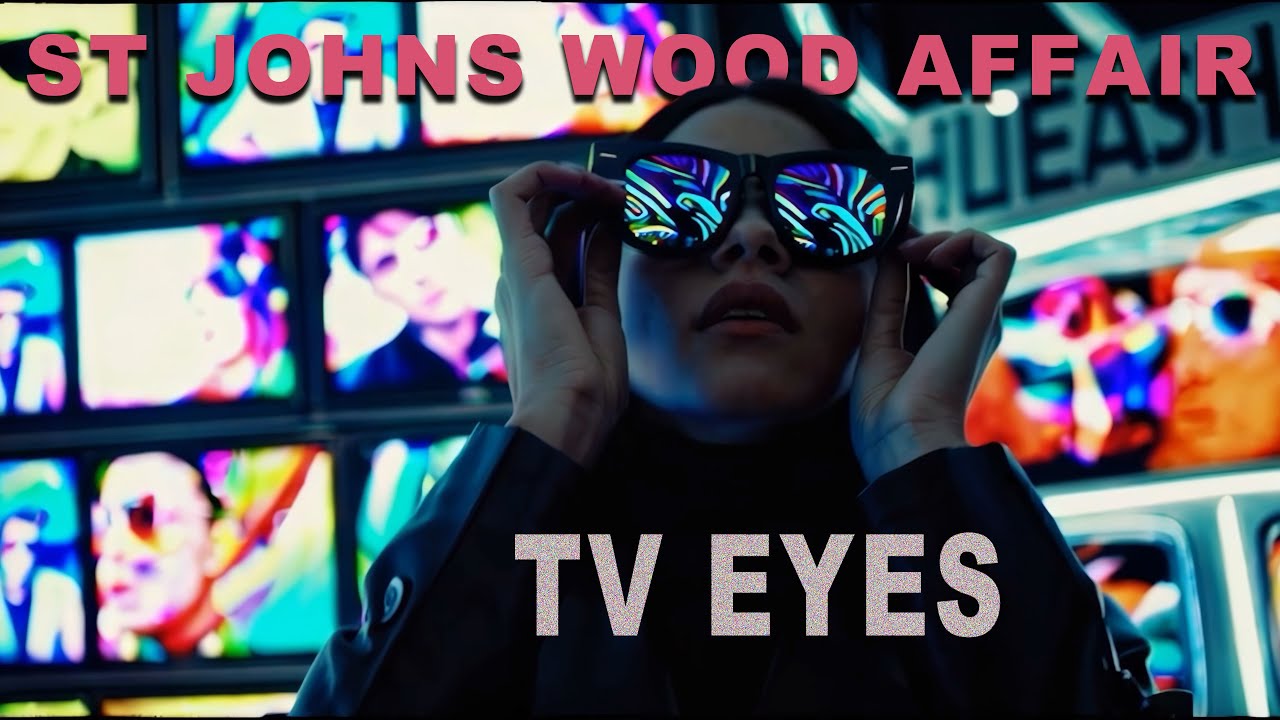
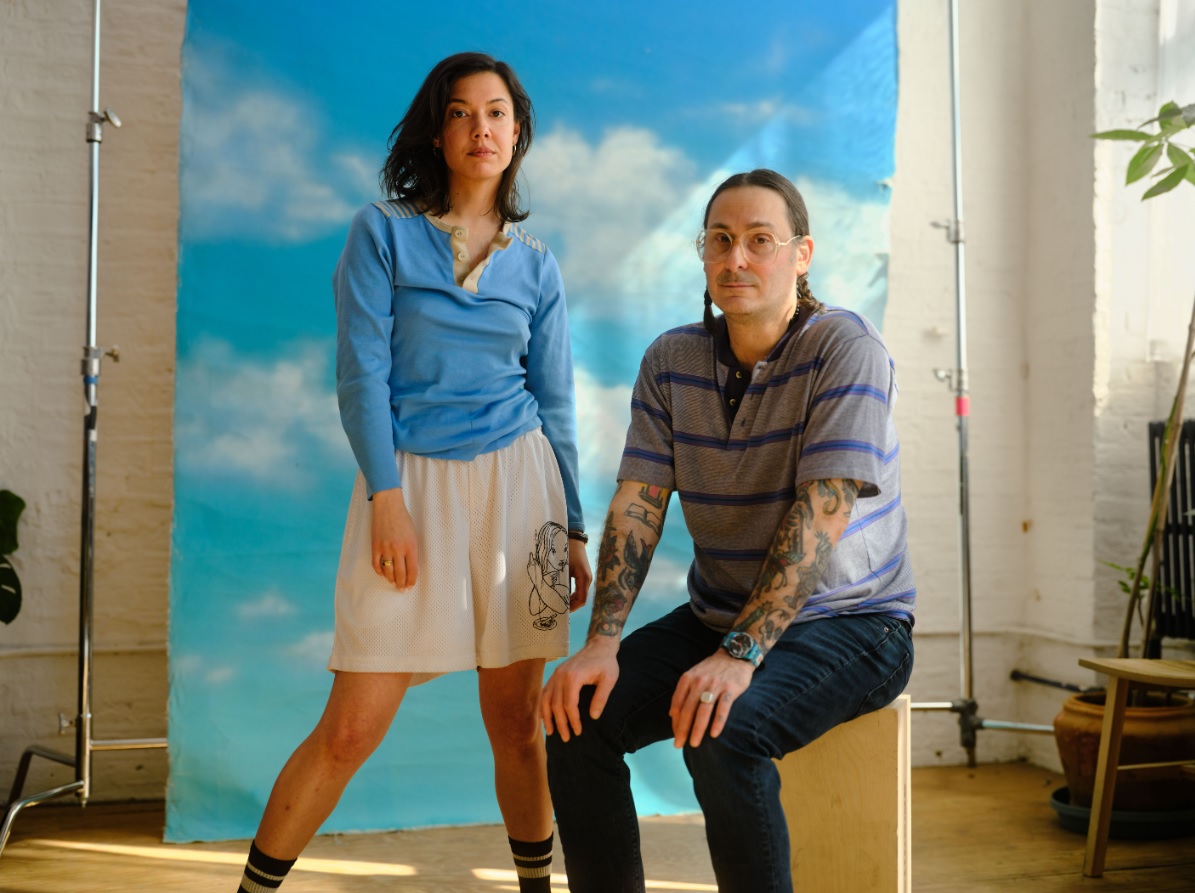
Just a quick word: i looked for a cd version in vain. There are 3 different versions – everything lps. I wounder if people still have all their cups around. Lp is “in”. Pure profiteering and marketing. I renouce !